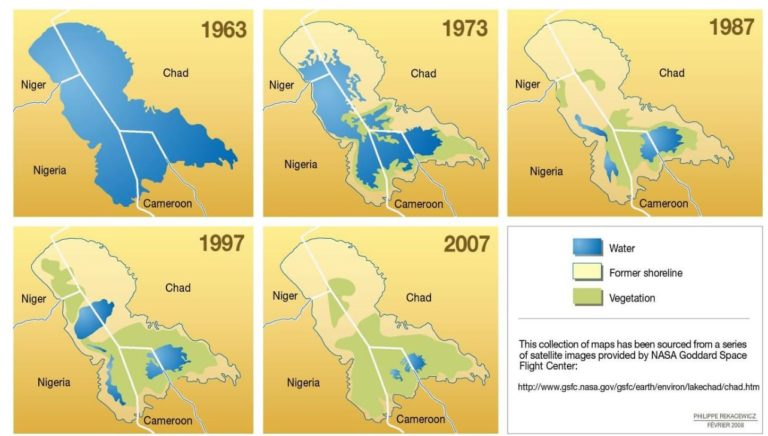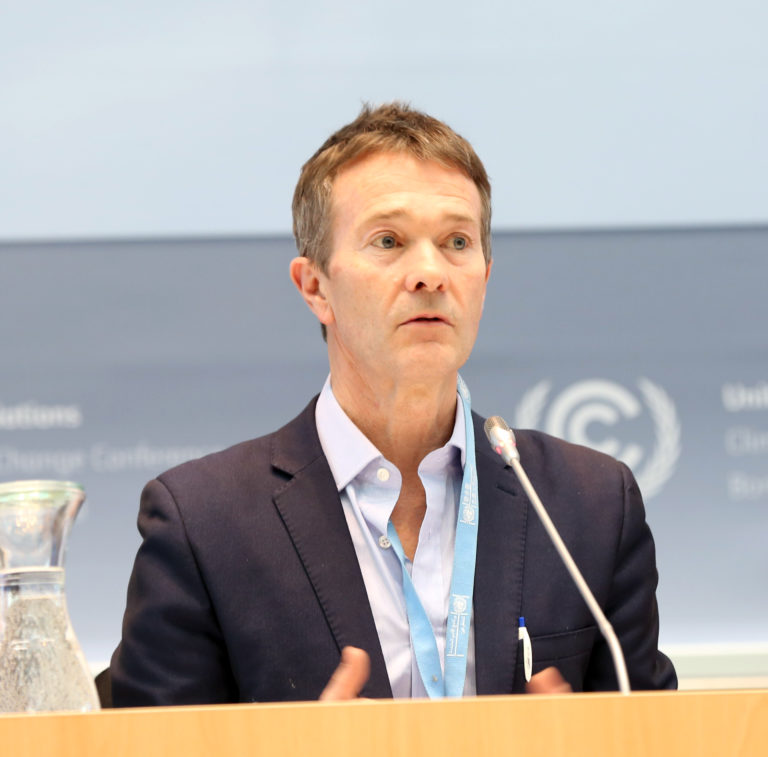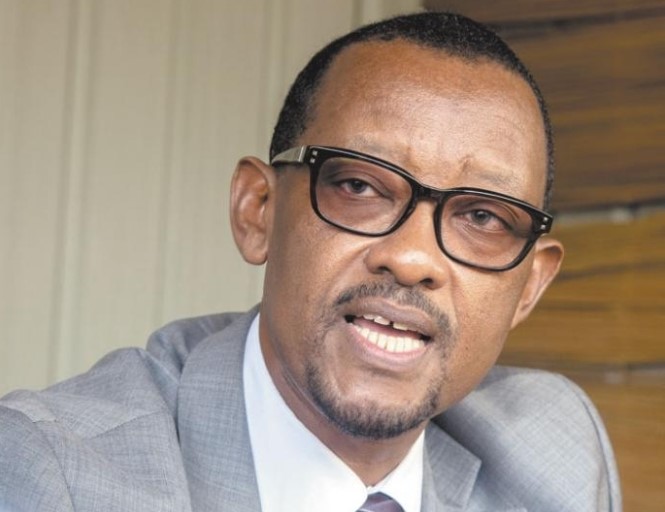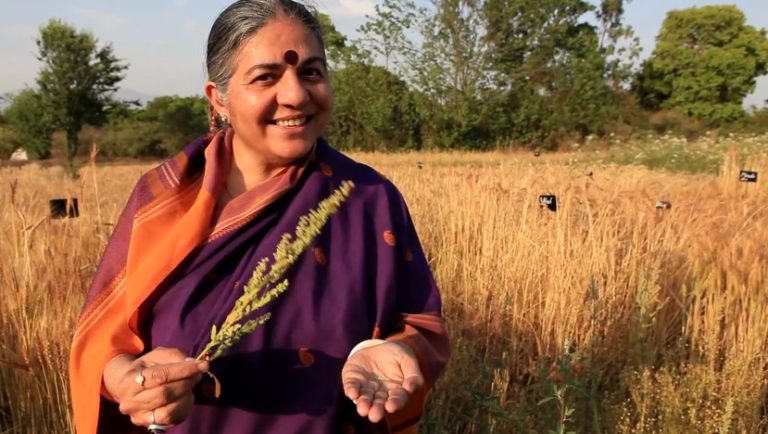As the world is confronted with the most threatened and complex challenges of climate change, developing countries are the most vulnerable and heavily impacted by climate variability, lacking the political and economic will to reduce and cope with the changes. These inadequacies often characterise the bloc’s negotiation setback among other world region in reaching a global climate agreement, though this is not the focus of this article.
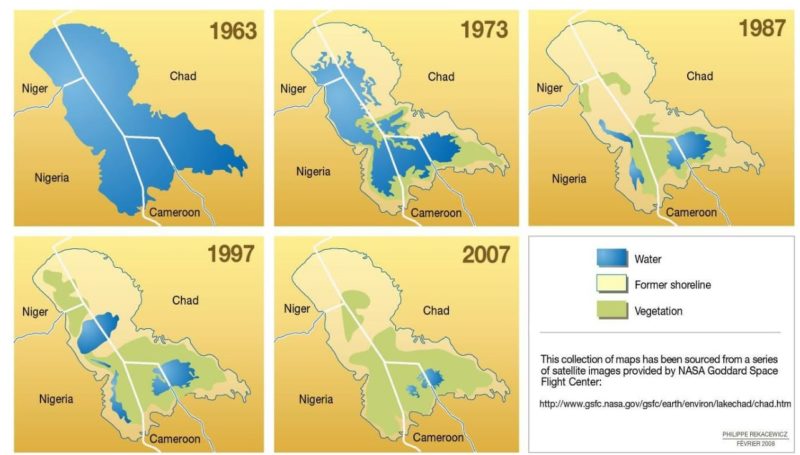
A case in point is the most rapidly growing populous country in sub-Sahara Africa with about 180 million people and projected to over-double to 400 million by 2040, Nigeria is struggling with the everyday reality of climate-induced challenges. Most of these challenges are weather-pattern dependent cutting across the ecological zones of the country resulting in conflicts and insecurity, flooding, food shortage, environmental degradation and habitat loss of wildlife species, drought, rural-urban migration, disease and infection. These climate-induced challenges are exacerbated by the complex issue of poverty as Nigeria’s poverty level index worsened to 72% record-high in August 2016 from 60% in 2015 with an average citizen living on $.05 per day compared to $ 1.1 per day respectively within the last five years according to a 2016 Fitch International report.
One obvious victim of climate change that has impacted Nigeria’s ecological and socio-economic landscape is the Lake Chad Basin – a trans-boundary wetlands covering Cameroun, Chad, Niger, and Nigeria with extension to Central African Republic. The Lake Chad Basin is one of Africa’s largest closed sedimentary groundwater basins and encompasses three climate zones: the Saharan desert climate in the north, the Sahel in central Chad with its wet and dry seasons, and the Sudan zone in the south with a hot, wet-dry tropical climate. This results in marked regional and season variation in rainfall. A 2004 UNEP Global International Water Assessment report shows evidence of the shrinking of the surface area of Lake Chad Basin from an approximately 25,000 km2 in the 1960s to 1,350 km2 in the 2000s. The two major causes of this reduction are climate variability and increase use of inflows from tributaries for irrigation and household needs of the growing population of 17 million in 2005 to 34 million within the past five years.
In 2012, the United Nations alerted on the severe implication and current impact of the vanishing Lake Chad on the rural livelihood of Nigerians dwelling in the region, calling on actions to halt the “ecological catastrophe”. Regional terrorism has typified the entire cross-boundary countries resulting from the drying Lake Chad which used to be the irrigation source for agriculture in the region. Unfortunately, it cannot ensure continued provision of this ecosystem services making locals find alternative source of livelihood resorting to Boko Haram – the deadly terrorist group that operates in the north-eastern Nigeria, Cameroun and Chad with questionable links with other international terrorist group. Aside financial gratification which comes with joining the terrorist group, easy marriage, government neglect as a result of oil boom are factors that have contributed to the proliferation of the terrorist group as a result of the vacuum created by the drying lake chad National Social Violence Research project.
Pastoral farmers/herdsmen in this region and other part are also forced to migrate down south where they can access greener pasture for their herds usually on farm land, leading to severe crisis among smallholder farmers and herdsmen. This has been a daily occurrence in Nigeria’s agricultural space, claiming an alarming number of lives and properties as pastoralists now carry dangerous weapon/armoury purportedly as self-defence to inflict pain on harmless farmers who do not allow such act.
The climate variability impact on Lake Chad has also worsened the abundance and conservation status of biodiversity that utilise the wetlands as refugia for their ecological activities. The number of endemic and migrant birds on the lake continues to decrease over the year due to water loss in the lake leading to aqua-resource degradation.
Already there is a very high infestation of some channels that feed the lake with water, by an invasive plant – Typha. This phenomenon over the years have limited the fish catch affecting the rural economy of the community. The success of 17-year-old conservation and livelihood effort of Nigerian Conservation Foundation (NCF) and its international partners – WWF, IUCN and BirdLife International, in the Hadeija Nguru Wetlands – a section of the Lake Chad basin in Nigeria, have a significant positive impact on wildlife and people in the region. NCF re-afforestation and livelihood projects have contributed to reduce the pressure of climate change on migratory birds and poverty.
Sea level rise has resulted in flooding occurrence dotting the agricultural and built-environment landscape in Nigeria, and affecting people in thousands from rural to urban centres. Okun Alfa community in Lagos is at the verge of extinction and the authorities are considering the relocation of the people as sea level continues to rise in the area. Similarly, farmers are worried and uncertain about the future of their investment in agriculture as farmlands are destroyed by flooding events in most agrarian states in Nigeria causing displacement of people. This becomes a severe threat to food security, thereby limiting Nigeria’s production capacity to meet the national demands which is exhibited in high cost of food import.
Among the numerous international government-assisted adaptation programme for Lake Chad Basin is an on-going five-year Germany-funded “Adapting to Climate Change in Lake Chad Basin” led by the Lake Chad Basin Commission to incorporate climate smart agriculture practices into farming/harvesting practices, storage practices, and value chain diversification for smallholders farmers who largely practice rain-fed agriculture making them vulnerable to climate variability.
Building Resilience
In order to forestall difficult times for Nigeria as one of the most vulnerable countries to climate change impact, there is need for the implementation of climate actions at all levels. Nigeria is committed to reduce carbon emission by 20% unconditionally and 45% conditionally by 2030 as stated in the country’s Nationally Determined Commitment (NDC), which is one of the roadmaps to keeping temperature well below 2oC targeting 1.5oC.
As the world passes the 400ppm threshold of CO2e in September this year, Nigeria must pursue a low carbon development pathway without compromising its developmental priorities through the implementation of climate actions. Everyone has a responsibility to cool the earth with our lifestyle if we do not want to leave a destroyed planet for our future generation.
Just recently at the UN General Assembly in New York, nine African nations joined the front runners to ratify the Paris Agreement signalling a genuine commitment in the regional bloc to fight climate change. This very commendable effort will engender Nigeria’s promptness to do the same as the Paris Agreement enters into force as 73 countries already deposited their ratification instruments representing about 57% of emission reduction commitment, and surpassing the required threshold of 55%.
The innovative financing approach of issuing green bond by the Federal Ministry of Environment to finance the $142 billion NDC could be a great start to this process but must also be planned carefully to reduce the risk of the current economic recession competing with reality of its achievement.
However private sector players must be ready to drive a low carbon pathway within their business operation to reduce their carbon emission with a larger effect on reducing global temperature.
A national Afforestation and forest regeneration effort that could nosedive the global temperature is one action among many others that will save Nigeria from current climate-induced disasters. NCF is ready to drive such with its greenery initiative which will bring back Nigeria’s forest cover from current 4% to the FAO-recommended 25% forest cover in the next few decades. It will accommodate current tree planting initiatives of most State government in Nigeria, thereby feeding the long term goal of this initiative.
By Solomon Adefolu, Climate Change Coordinator, Nigeria Conservation Foundation (NCF)

